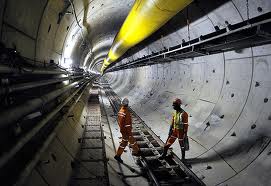Mali is looking to its $9.5 billion worth railway projects to help open up its economy as improved transport links would attract investors to under-explored resources such as iron ore, bauxite and uranium that are bulkier and more costly to transport than gold- the country’s current economic mainstay.
The West African country last month signed $11 worth of investment deals with china among which were $8 billion worth 900-km railway to Guinea’s port capital Conakry and $1.5 billion for the renovation of a rail link to Senegal’s capital Dakar, Mali’s main gateway port.
The projects are expected to help landlocked Mali diversify its mining sector away from gold, of which it is Africa’s third largest producer. “The infrastructure will enable Mali to end its dependency on gold,” Reutrers quotes Lassana Guindo, an adviser at the mines ministry.
According to Reuters, Chinese company CGCOC Group plans to exploit Mali’s 100 million tonnes Bale iron deposit, 220 km (136 miles) west of Bamako. “The company will build a steel plant and also construct a 400 megawatt power plant,” said Ousmane Mamadou Konaté, a technical adviser on a Malian delegation to China in September.
Aside from Bale, other iron ore deposits in the same basin are estimated to hold some 400 million tonnes and would all benefit from the rail project, Guindo said.
Also, Eurasian Natural Resources Company, which holds the rights to Mali’s estimated 439 million tonne bauxite deposit in Falea, stands to benefit from the prospective railway.
ENRC country manager Dialla Konate said the company is targetting production of about 152 million tonnes of alumina – used to produce aluminium – from Falea and other Malian projects. “In our ongoing feasibility study, we plan to use both rail lines to Conakry and to Dakar,” Konate said.








